
A March 27 American Friends of Magen David Adom (AFMDA) young professionals mixer at Ten Thousand, a new apartment complex on Santa Monica Boulevard in Los Angeles, featured guest speaker Capt. Ziv Shilon of the Israel Defense Forces (IDF), who was rescued by Magen David Adom after suffering a near-fatal injury in 2012.
Magen David Adom, Israel’s emergency-response organization, provides 100 percent of the blood for the IDF and 97 percent of the blood for the entire country, an AFMDA press release said.
Several years ago, Shilon received 52 units of blood, according to the release, after he was struck by an improvised explosive device while participating in a mission along the Gaza border.
“All were inspired by his story as they also celebrated his victory over the challenges that he faces, having lost limbs in Gaza,” the release said.
The event drew more than 230 attendees from entertainment, real estate, high-tech and other fields who mingled and enjoyed sushi, deli foods, dessert and martinis.
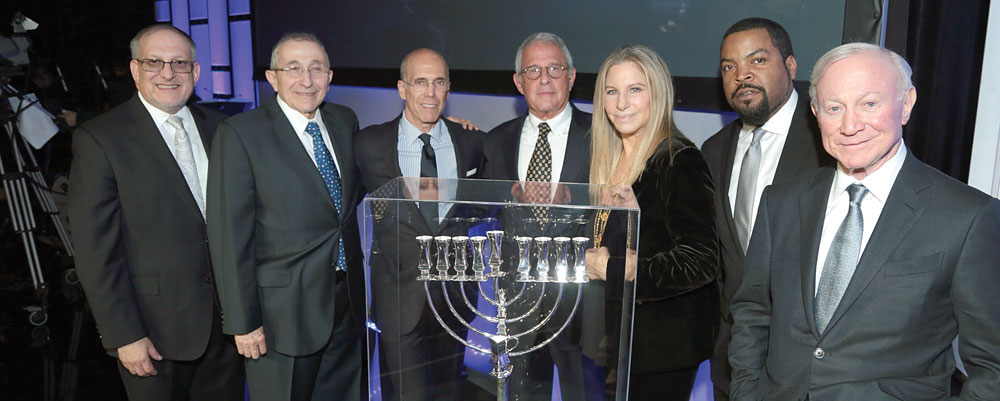
The Simon Wiesenthal Center/Museum of Tolerance 2017 National Tribute Dinner drew prominent guests and speakers to celebrate the center’s 40th year, including singer and actress Barbra Streisand, Jerusalem Mayor Nir Barkat and former DreamWorks Animation CEO Jeffrey Katzenberg.
But the name that jumped off the evening’s program was the emcee, O’Shea Jackson, also known as Ice Cube from the rap group N.W.A.
“I know I may not be the most obvious host for tonight’s events,” he said onstage at the April 5 dinner. “But we’re not living in obvious times.”
“Recent events have only made nights like tonight and this museum’s purpose more important,” he added.
The black-tie event filled the 1,300-seat ballroom at the Beverly Hilton, raising a record $2.65 million for the center — half a million dollars more than it has raised at similar past events, according to Larry Mizel, chairman of the Wiesenthal Center’s board of trustees.
The evening honored Ron Meyer, vice chairman of NBCUniversal, with the center’s 2017 Humanitarian Award.
Meanwhile, the center’s dean and founder, Rabbi Marvin Hier, presented a posthumous Medal of Valor to former Israeli President Shimon Peres and Roddie Edmonds, a U.S. Army officer and prisoner of war who saved 200 American-Jewish soldiers during World War II by refusing to give them up to his Nazi captors.
Reverend Johnnie Moore, who has helped rescue dozens of Christians from the Islamic State in Iraq and Syria, also received a Medal of Valor.
The dinner also drew politicians and government officials, including Consul General of Israel in Los Angeles Sam Grundwerg, former Los Angeles Mayor Antonio Villaraigosa, California Insurance Commissioner Dave Jones, State Senator Jeff Stone, and State Assemblymembers Dante Acosta and Laura Friedman. Other celebrity attendees included actors Michael Douglas and Tobey Maguire and actress AnnaLynne McCord.
Taking the stage to introduce Meyer, Streisand took aim at the Trump administration, saying the president “uses the bully pulpit to simply bully, offering no ideals and aspirations.”
“We must heed the warning signs of the past echoing in the discourse and the politics of the present,” she said, “for history has shown us the horrors of quiet whispers when we must all be shouting from the rooftops to say, ‘Never again.’ ”
—Eitan Arom, Staff Writer
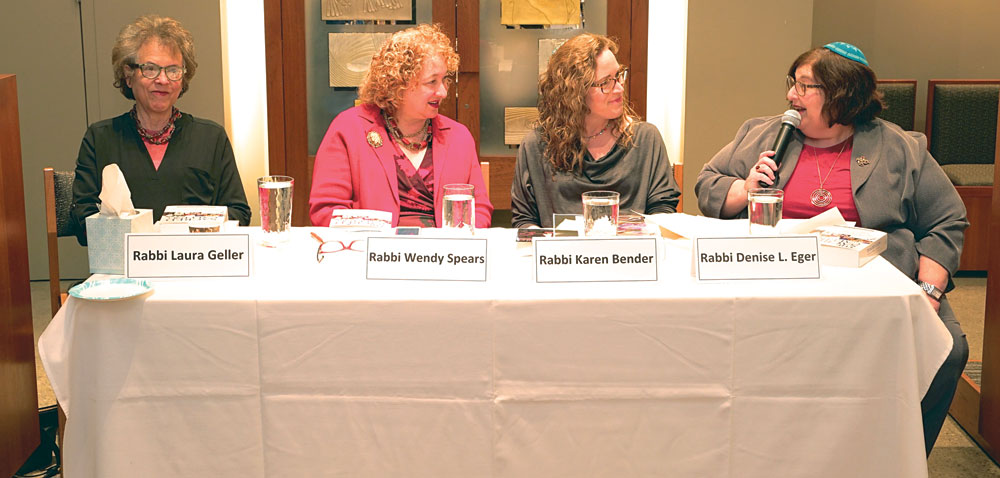
Congregation Kol Ami Rabbi Denise Eger, the 60th president of the Reform movement’s Central Conference of American Rabbis (CCAR), has concluded her two-year term as CCAR president.
The March 20 CCAR annual convention in Atlanta marked the culmination of her term, which began in 2015 and was historic as Eger became the first openly gay rabbi to serve as the organization’s president. CCAR is the oldest and largest rabbinical association in North America.
Rabbi David Stern of Temple Emanuel in Dallas is succeeding Eger, whose synagogue, Kol Ami, is based in West Hollywood and conducts gay and lesbian outreach programs.
“This experience of leadership impacts my every day at Kol Ami,” Eger said in an email. “I learned a tremendous amount about how others are dealing with the same challenges and issues and complexities of Jewish life. I hope to bring that knowledge back and share it with my community.”
A Feb. 28 panel at Kol Ami commemorated the end of her term and explored the recent anthology “The Sacred Calling: Four Decades of Women in the Rabbinate.” Panelists were some of the most prominent women in Jewish life in Los Angeles: Eger; Rabbi Emerita Laura Geller of Temple Emanuel of Beverly Hills; Rabbi Karen Bender, director of spiritual life at the Los Angeles Jewish Home; community-based Rabbi Wendy Spears; and Cantor Aviva Rosenbloom, cantor emerita of Temple Israel of Hollywood.
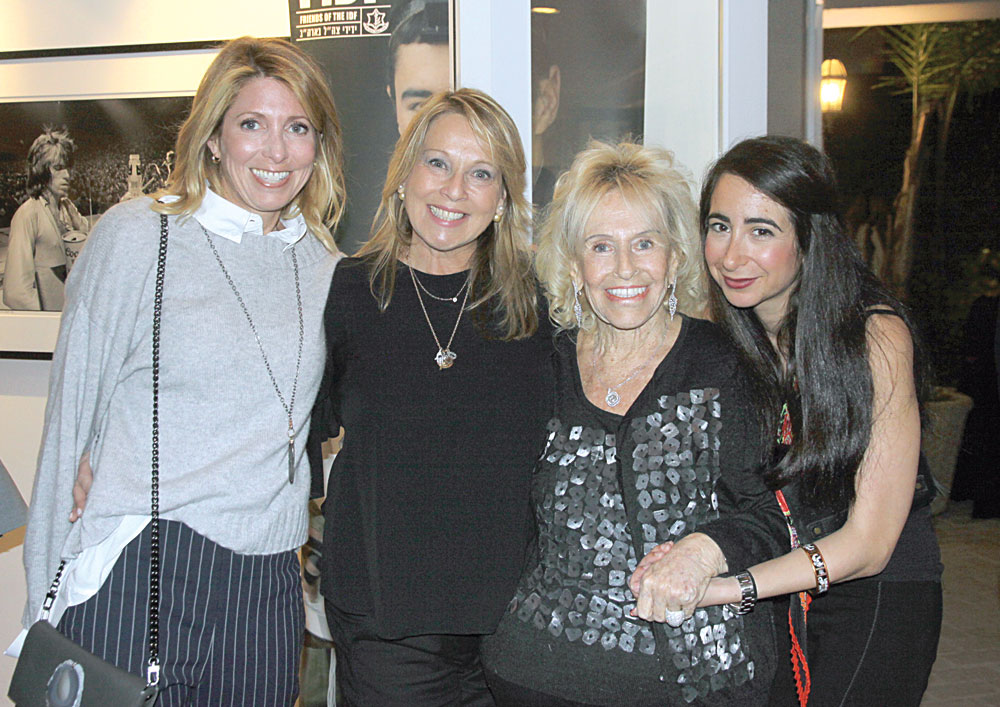
Nearly 200 people attended a Shabbat dinner on March 31 co-hosted by the Friends of the Israel Defense Forces (FIDF) and 3G at the Los Angeles Museum of the Holocaust (LAMOTH), which is a group of grandchildren of Holocaust survivors.
The event was held at the Beverly Hills home of Zachary Zalben. Cocktails and dinner preceded a parlor-style discussion about Israel and the Holocaust. Speakers included Ester Tepper, a Holocaust survivor and former Israel Defense Forces (IDF) soldier; Avi Arad, a former IDF soldier and son of a Holocaust survivor; and Itay Kohane, an IDF soldier and the grandson of Holocaust survivors.
The event raised approximately $20,000 for the FIDF’s Witnesses in Uniform program, which sends Israeli soldiers to Holocaust sites in Poland, and for LAMOTH’s Share Our Stories Project, which connects Holocaust survivors with under-resourced schools.
LAMOTH Director of Education Jordanna Gessler and Molly Soboroff, FIDF’s Western Region young leadership director, organized the event and delivered closing remarks.
Zalben, along with Guy Lipa and Galit Prince, co-chaired the event.
— Eitan Arom, Staff Writer
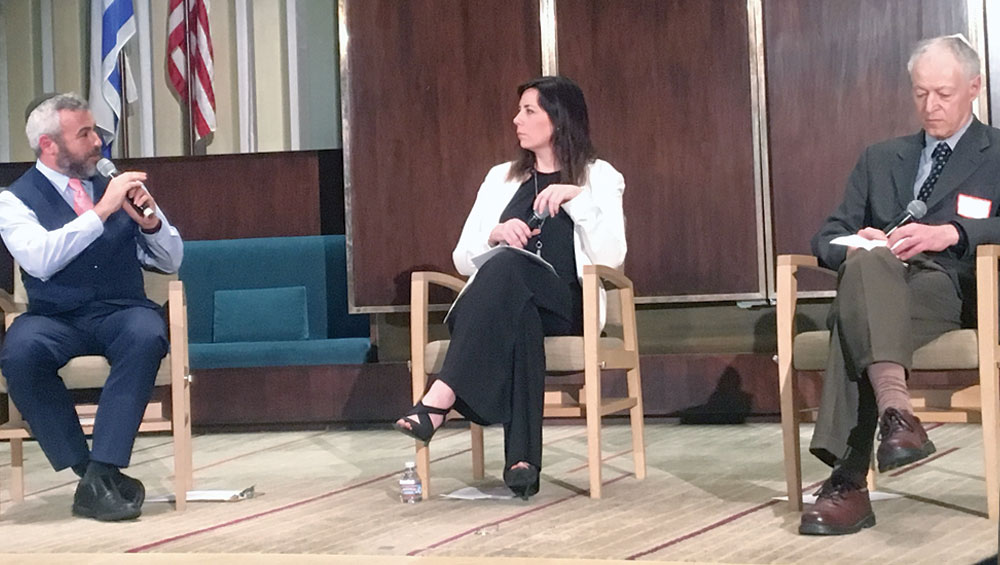
During Temple Emanuel of Beverly Hills’ (TEBH) March 30 forum, “Competing Visions for Israel: J Street and a Settler in Conversation,” Jewish Community of Hebron spokesman Yishai Fleisher and Special Advisor to the President of J Street Alan Elsner discussed their opposing visions for the Jewish state.
“The 1947 partition plan was the idea of sharing the land, one state for the Jews and another for the Palestinians,” Elsner said. “The Palestinians rejected that, the Arab world rejected that, but in the 1990s, under the Oslo Accords, we finally got to a position where both sides were willing to talk about a division of the land, and I think that is the only way that you can actually end the conflict with a modicum of justice to those who have been dispossessed up until now.”
Fleisher argued for alternatives to the two-state solution.
“Before I get to them,” Fleisher said, “I have to deal with the calcified way we have been told for the longest time that the only solution is the two-state solution, when in fact it has been a historic, scientific failure, which has been tried over and over and over again with utter failure and utter war. And the two-state solution will do nothing for Israeli security. And that has been proven.”
One of the attendees, Natan Benchimol, president of Students Supporting Israel at Santa Monica College and a Zionist Organization of America campus fellow, told the Journal he connected with Fleisher’s position.
“As a college student leader who hears the same arguments going back and forth across campuses, it was refreshing to hear Yishai utilize his authentic, creative and insightful opinions to express his support for the Jewish homeland and alternative solutions,” Benchimol said.
StandWithUs CEO Roz Rothstein, philanthropist Nurit Greenger and TEBH Executive Director Eric Reiter also attended what was the third installment of the TEBH Behrendt Conversation Series, which features “discussions about politics, diplomacy, Israel and everything in between,” according to a TEBH press release.
TEBH Rabbi Sarah Bassin, the event’s moderator, said the conversation was necessary at a time when people crave healthy debate.
“We have been living in an environment that has been increasingly polarized, where people speak to echo chambers and to their political sidelines, where we have lost our resilience to hear competing ideas with which we disagree,” Bassin said. “And tonight, here at Temple Emanuel, we are changing that culture. We are here to engage in difficult conversation.”
— Mati Geula Cohen, Contributing Writer
Moving & Shaking highlights events, honors and simchas. Got a tip? Email ryant@jewishjournal.com.








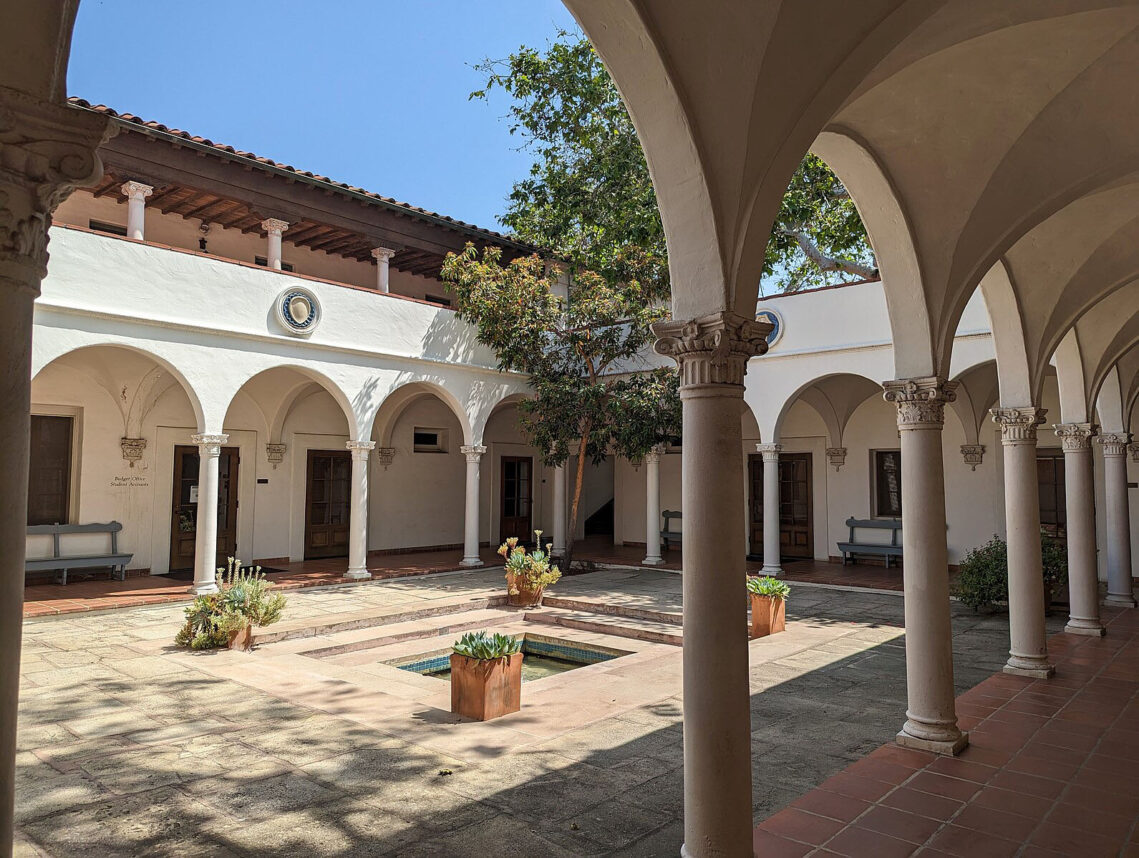
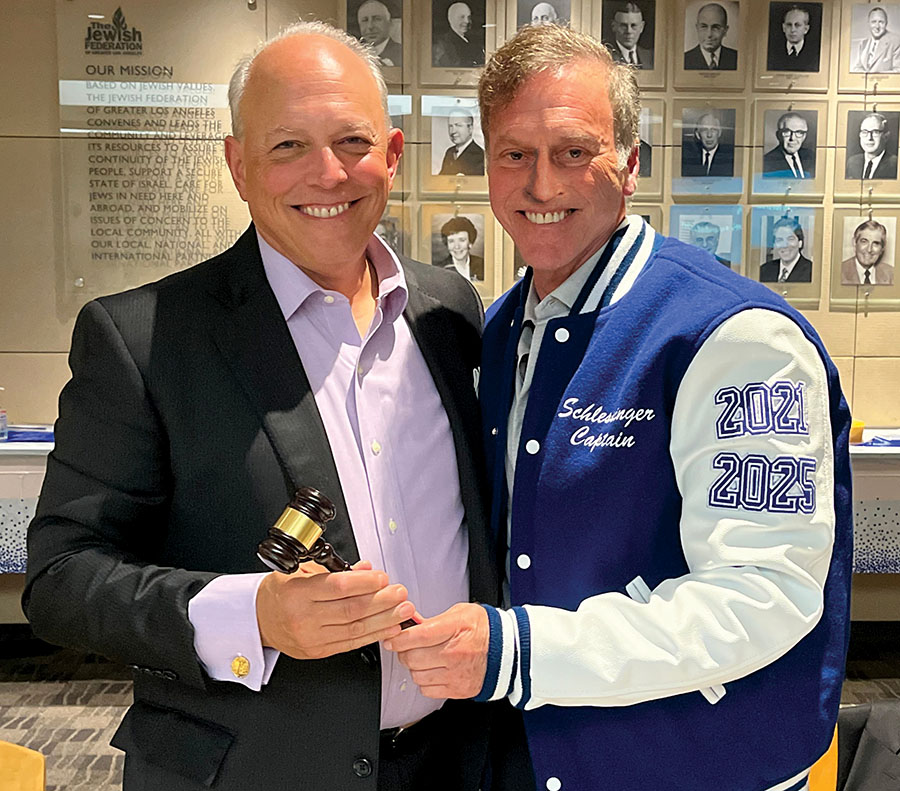
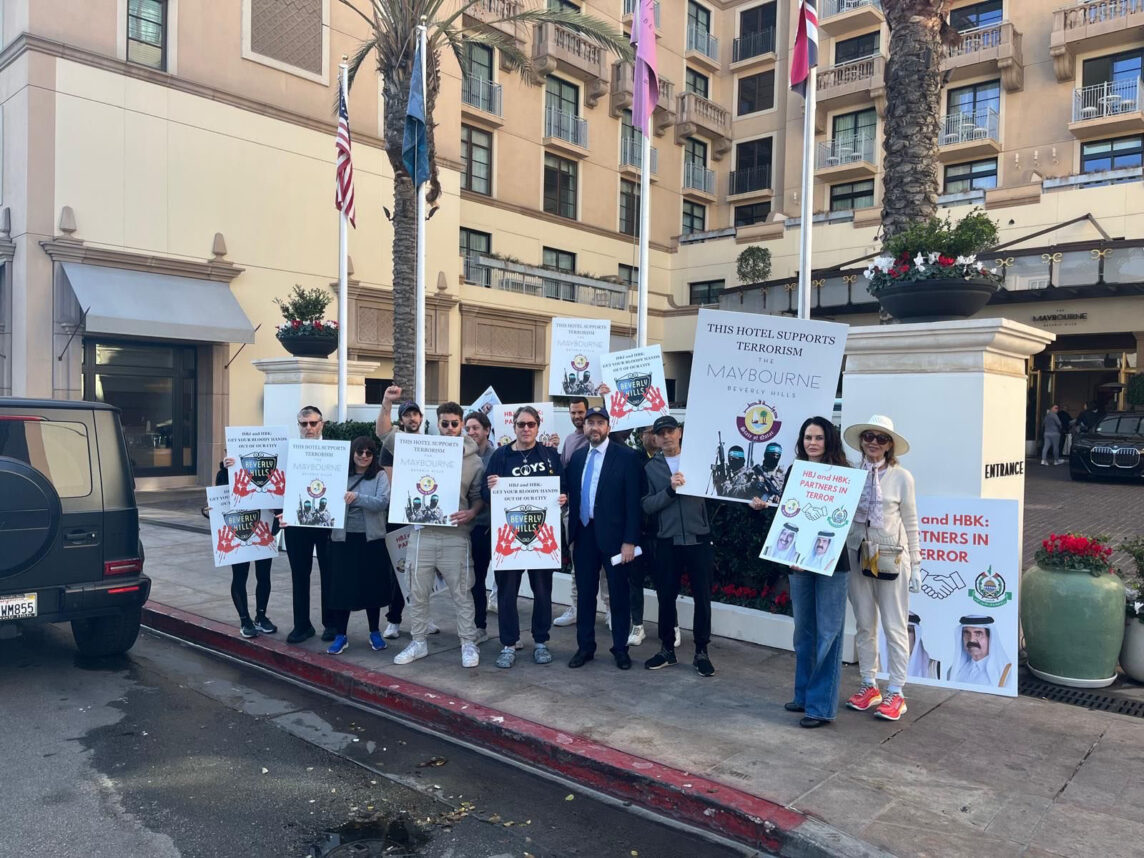
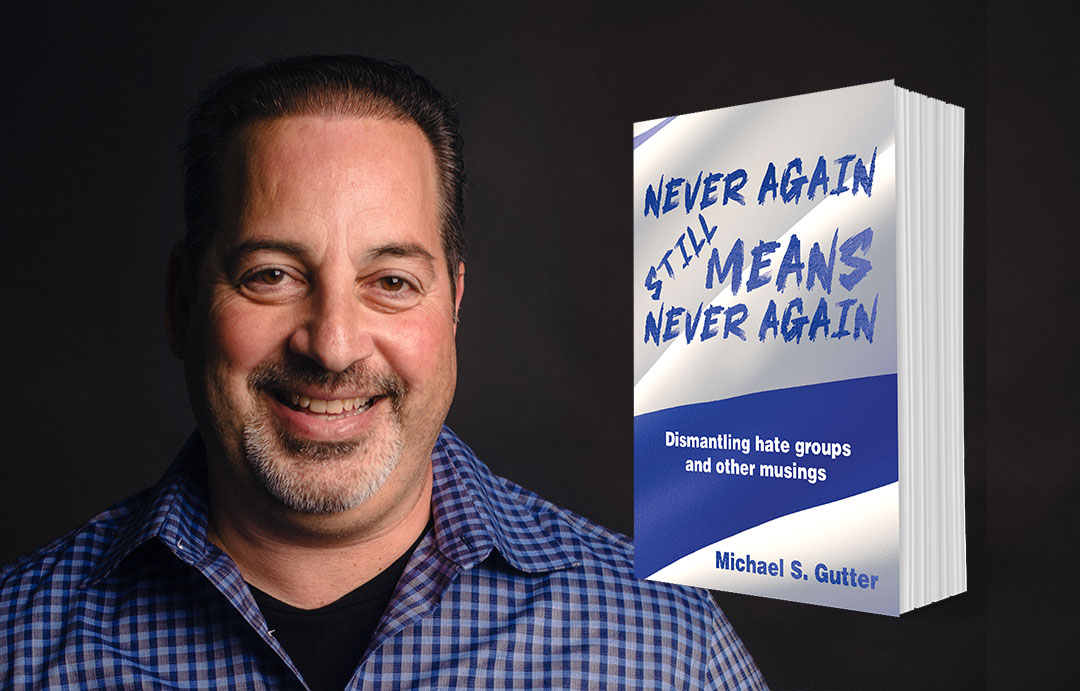
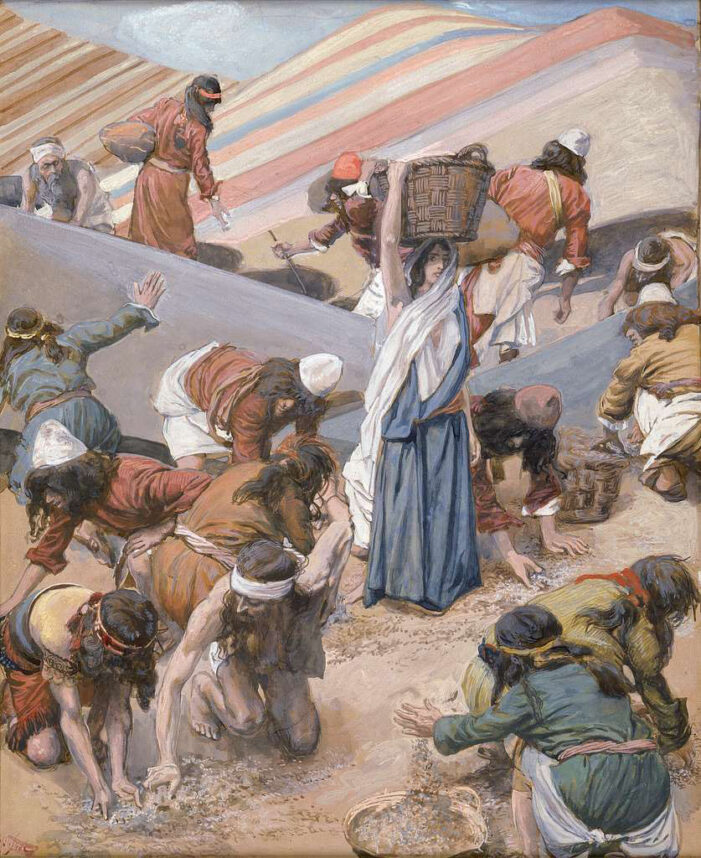

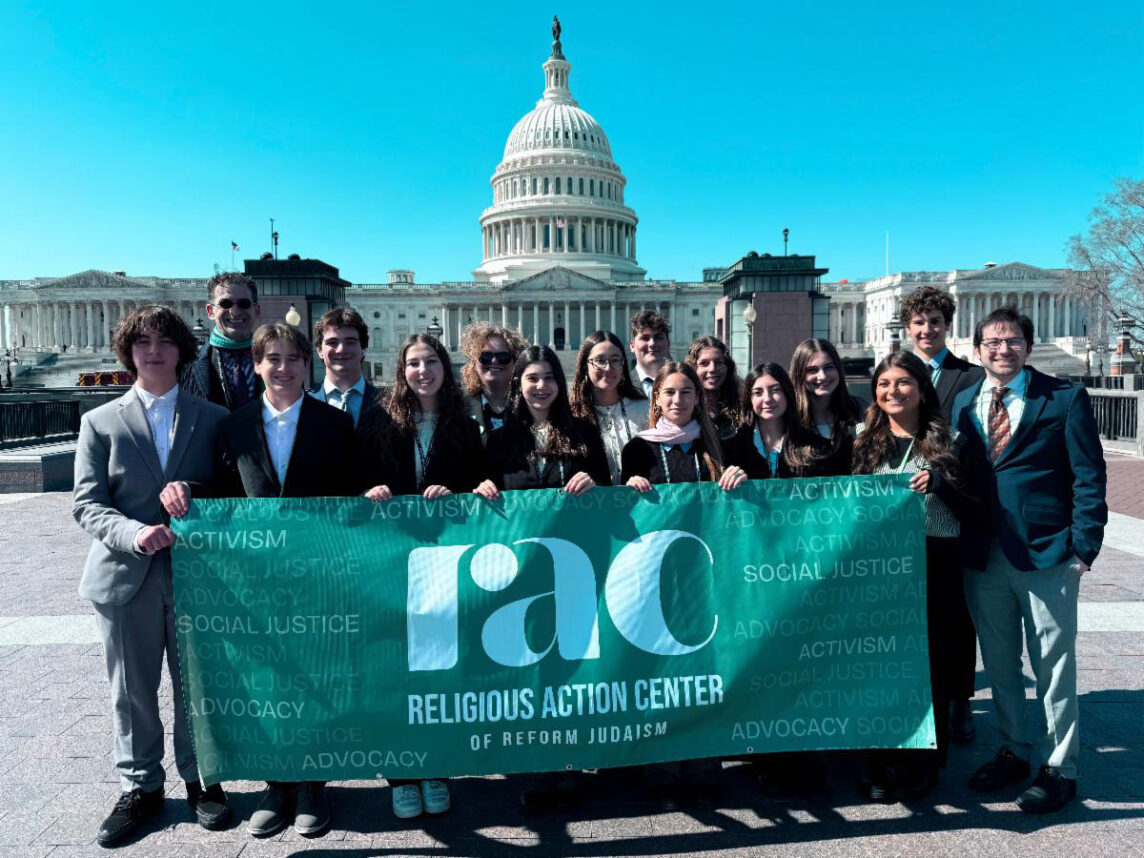
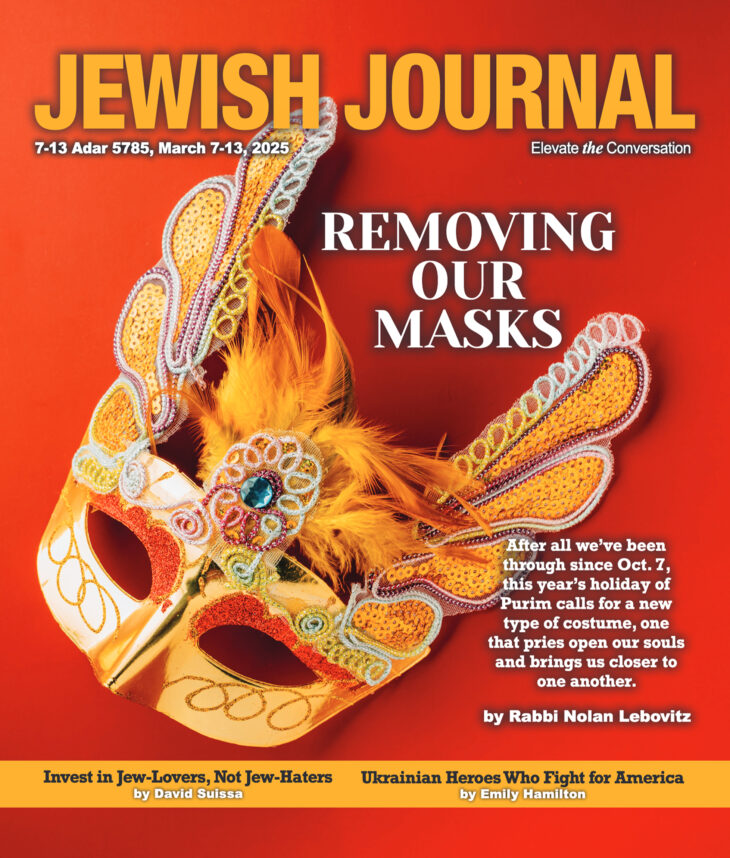
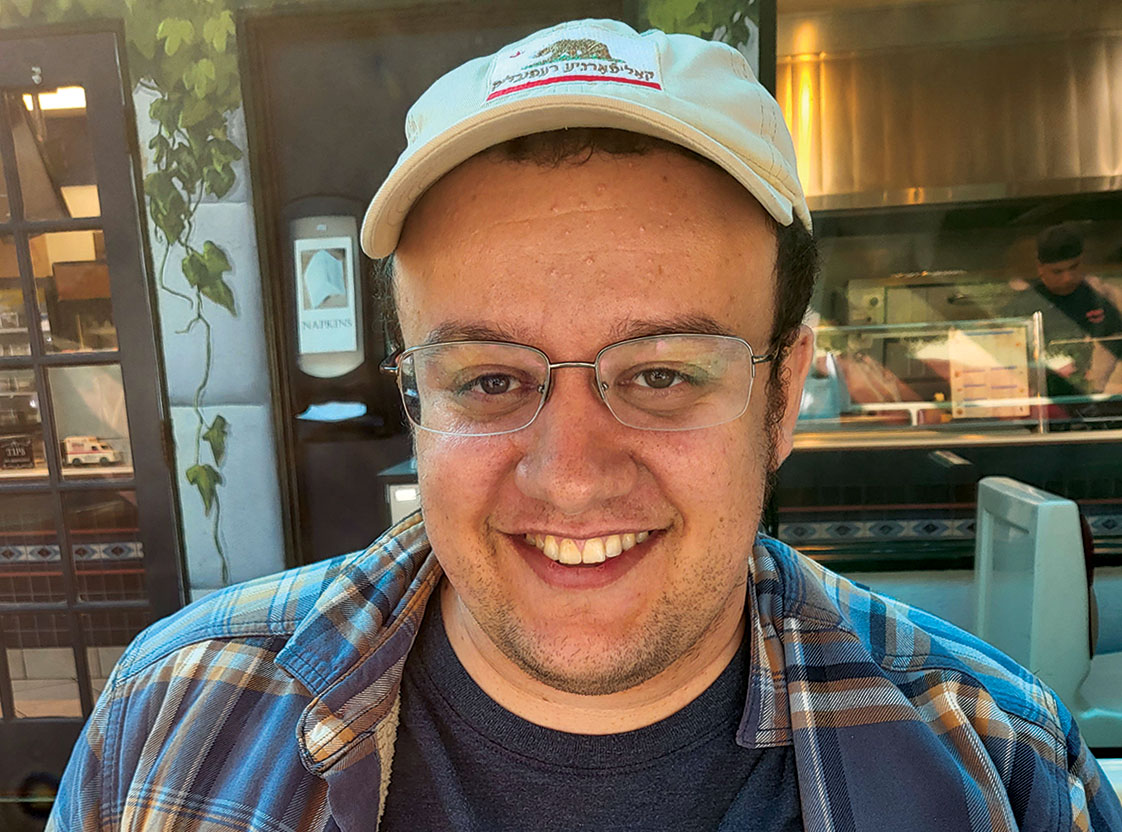
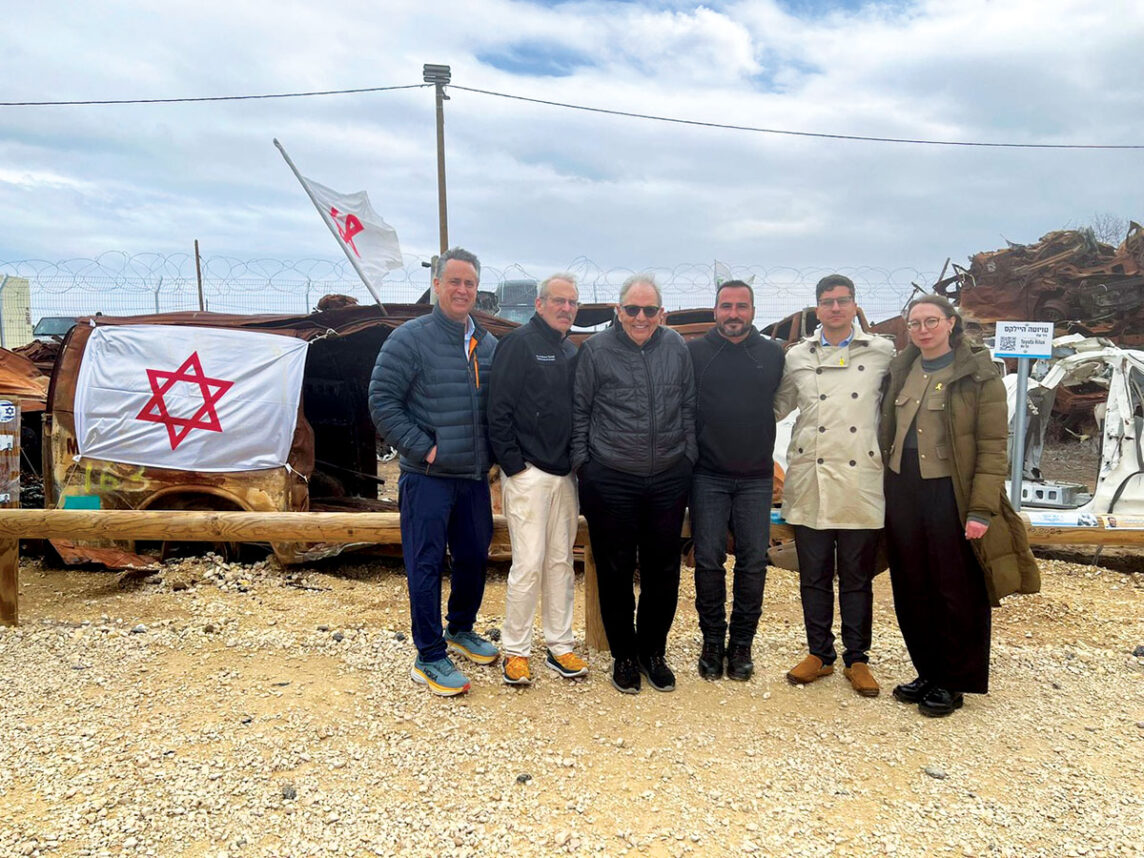



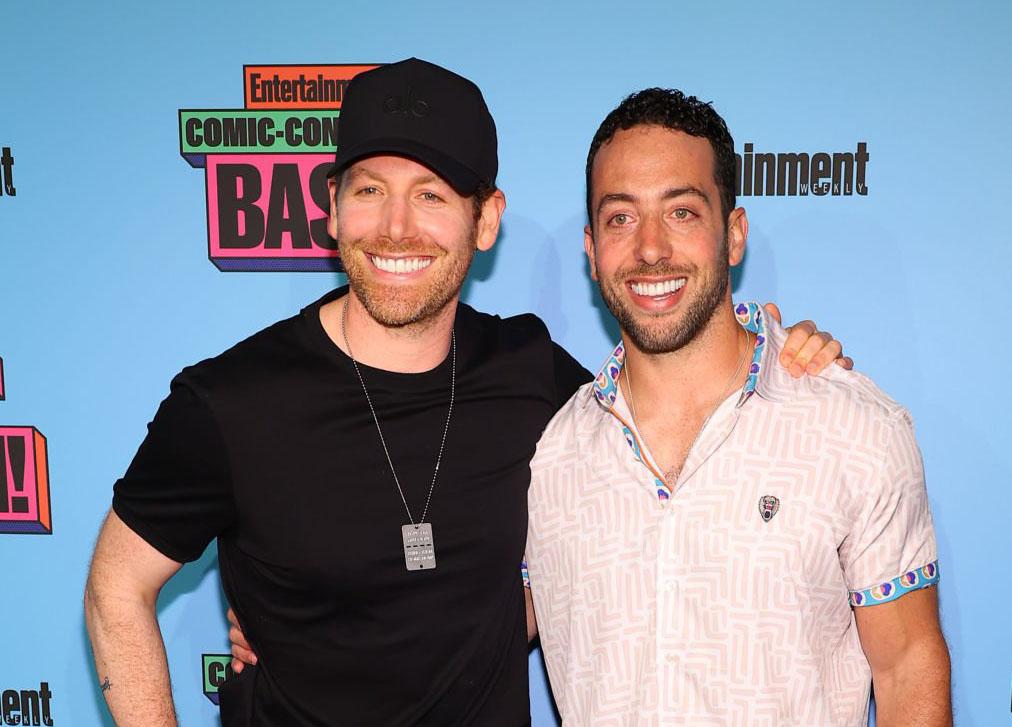


 More news and opinions than at a Shabbat dinner, right in your inbox.
More news and opinions than at a Shabbat dinner, right in your inbox.